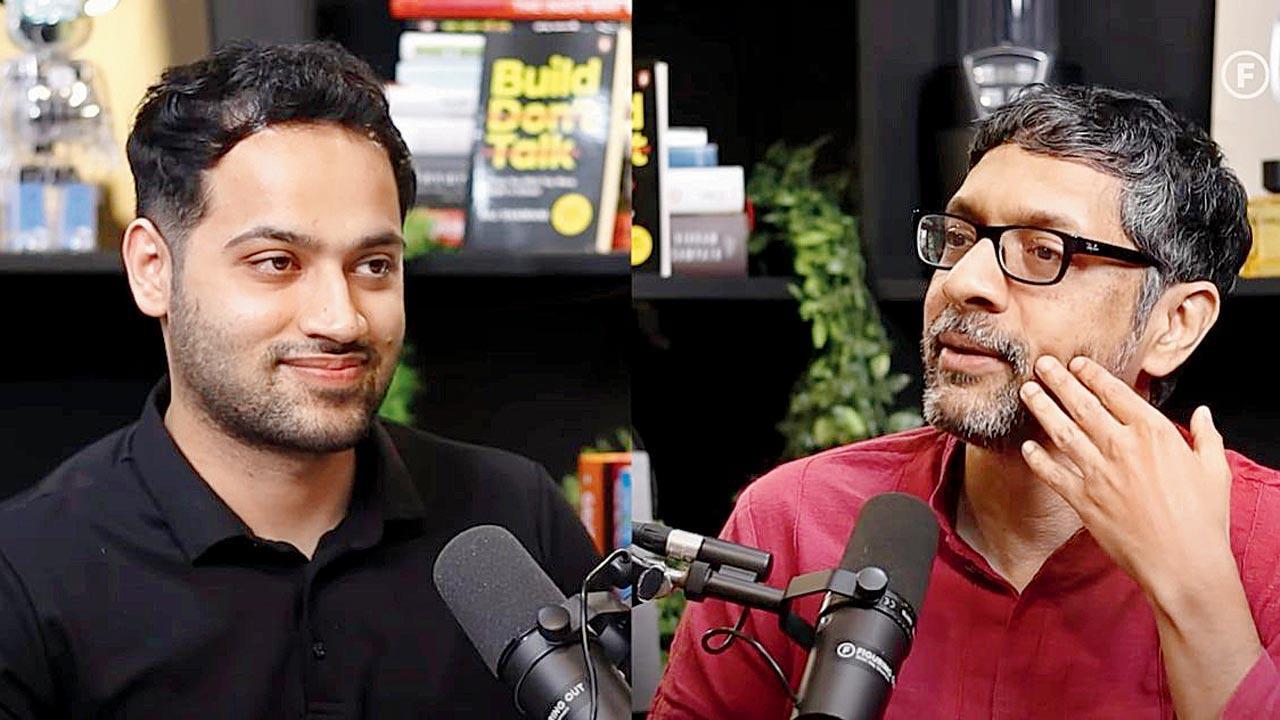This week’s podcast recommendation tackles myths about Indian diets, processed foods and the science behind everyday cooking

Raj Shamani and Krish Ashok discuss nutrition and the myths around it in the episode. Pic Courtesy/Youtube
The Internet is teeming with facts and theories about nutritious eating. While some are proponents of trending superfoods and elaborate diets, others advocate for simplicity. Dissecting fact from fiction can be challenging in this vast sea of information. There’s a growing conversation about the virtues of balanced, whole-food diets like the time-tested Indian diet. In their podcast, content creator, Raj Shamani and Krish Ashok, author and science communicator dissect some widely-circulated facts about the harmful effects of processed foods, common misconceptions, and debunking certain sides to the Indian diet.
ADVERTISEMENT
The concept of ‘ghar ka khana’ is widespread in India. There is compelling evidence to suggest that diets rich in processed foods, refined grains, excessive fats, and sodium can have detrimental effects on health, shares Ashok. Contrary to a common misconception, refrigerated foods retain their nutritional value, with minimal loss of micro-nutrients over time. The duo assure that refrigerated foods can safely be stored for up to a week, challenging notions that such storage diminishes nutritional benefits. Indian food which is prepared using salt, spices, and sour elements. These naturally preserve foods when properly seasoned. Leftover dishes stored in the refrigerator are healthier alternatives to ordering take-out, maintaining both taste and nutritional integrity. “Your body needs cooked food, but it is untrue that you don’t get nutrition from refrigerated food, claiming it unhealthy,” he explains in the podcast.
Shedding light on the myth that food prepared in a microwave oven can lead to cancer, Ashok elaborates, “It emits less radiation than visible light. It doesn’t have the energy to change your DNA, because it is low-energy radiation. Only in India will you come across people who believe that non-ionizing radiation like the microwave can cause cancer, while choosing to not apply sunscreen, believing that sun rays can never harm.”
The podcast also discusses how the average urban Indian middle class suffers from over-nutrition, which is an imbalance of nutrients. The typical Indian thali has five to six grams less protein compared to average meals consumed in the West. Less protein in the Indian diet remains a concern.
The duo reminds listeners about the perils of consuming Indian spices in excess. Moderation is the key. The average consumption of spices used in our kitchens is acceptable; individuals don’t necessarily need to consume it separately just because it is healthy. “There is nothing like a superfood, or a supervillain in food,” claims Ashok.
They sum things up nicely, “People overthink health and nutrition. What matters is the balance in the nutrients and your convenience.”
LOG ON TO YouTube
 Subscribe today by clicking the link and stay updated with the latest news!" Click here!
Subscribe today by clicking the link and stay updated with the latest news!" Click here!







